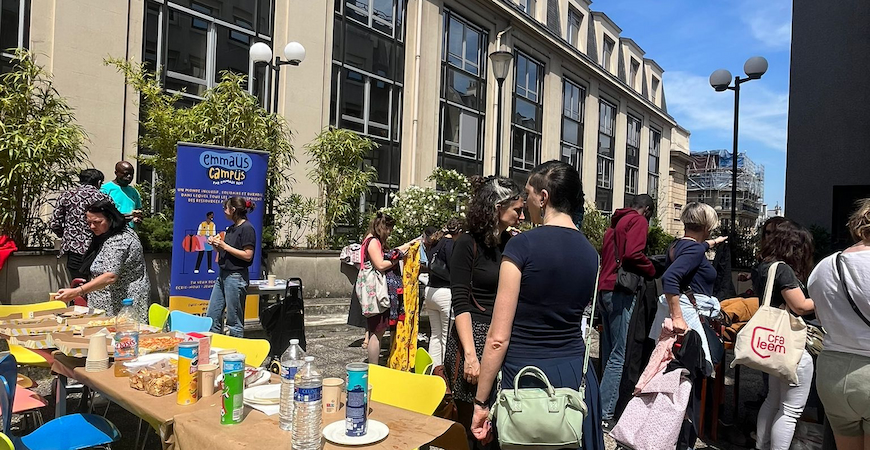Emmaus Campus: young people take centre stage!
European young people are increasingly affected by precariousness and the Emmaus movement is seeking ways to meet their needs. This idea also involves reviewing our practices to allow young activists to join us. In Paris, the Emmaus Défi group is trying to meet this twofold challenge by creating Emmaus Campus, a young and inspiring integration project! We met Mederic, its director:
Can you tell us why Emmaus Défi came up with the idea of setting up Campus?
In 2020, Emmaus Défi made three observations:
- We were at maximum capacity in our current premises, with 150 employees on work integration schemes… and yet, similarly to all the other Emmaus groups, a large number of people were still knocking on our door and we were unable to help them.
- The precariousness of young people has doubled over the last twenty years and was further exacerbated in the wake of the COVID crisis. The Emmaus movement was only partially able to address this issue.
- Young people are increasingly keen to get involved, but we have not geared our welcoming and volunteering methods to suit them.
Through the creation of Emmaus Campus, Emmaus Défi aimed to set up a scheme that would address these three issues.
How does it work specifically?
Emmaus Campus carries out “classic” Emmaus group activities. It runs a work integration project that supports people experiencing job insecurity by offering solidarity-based work involving the collection, sorting and sale of second-hand items. We simply tried to add a youth dimension to every aspect of our work:
- We welcome a higher proportion of young people among our employees, in order to meet our target of ¾ under the age of 30.
- We set up our shops near universities or places where young people gather, such as the campus at the Sorbonne Nouvelle faculty, or Forum des Halles shopping centre.
- We regularly organise pop-up sales on campuses and at universities.
- We offer special sales and discounts in our shops to enable young people to buy articles at low prices (-30% for under 30s).
- We organise solidarity donations of clothes for students facing hardship.
- We welcome a lot of interns and have launched “Pass Campus”, a voluntary scheme for young people.
- By the end of the year, we will initiate “inser-jeunes”: a mobile team made up of 100% employees under 30 on integration schemes, who will receive appropriate support and carry out collection, sales, awareness-raising and distribution activities in student settings.
What advice would you give to other groups in Europe who would like to set up a similar activity?
Go for it! The starting point is actually fairly straightforward. You just need to tailor your current activities to a specific group of people, with particular needs and constraints. Start by listening: what do they need and want? In terms of your group’s current work, what is preventing them from becoming potential volunteers or beneficiaries?
It seems obvious, but the challenge of welcoming young people in our groups is absolutely vital for the future of our movement. It’s an enormous source of creativity and energy that we cannot do without!
We could, and should, come up with many different types of Emmaus groups, tailored to specific groups of people, focussing on the most vulnerable and people whose needs we are not yet fully addressing. Emmaus for seniors, Emmaus for single-parent families, Emmaus for people with disabilities, etc. This would enable us to become even more inclusive and to really welcome everyone.

Credit: Emmaus Campüs



